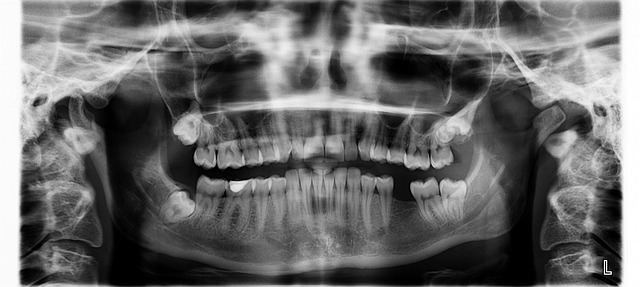Discover Dental Assistant Training Opportunities in Germany
In Germany, individuals interested in the dental field have a variety of educational paths available to become a dental assistant. This informative guide highlights the training options and programs offered in various cities. Understanding the requirements and opportunities within the dental industry can help aspiring professionals navigate their careers effectively.

Exploring the Role of a Dental Assistant in Germany
In the German dental care system, dental assistants perform a comprehensive range of duties that extend beyond simply assisting the dentist chairside. They are responsible for preparing treatment rooms, sterilizing instruments, taking and developing x-rays, and assisting during procedures. Additionally, they handle administrative tasks such as appointment scheduling, maintaining patient records, and processing insurance claims. In Germany, dental assistants often take on more responsibilities compared to some other countries, including preventative care education and basic dental hygiene procedures under supervision. This multifaceted role requires both technical knowledge and excellent interpersonal skills, making it a demanding yet rewarding career choice in Germany’s healthcare sector.
Educational Pathways for Aspiring Dental Assistants
The journey to becoming a dental assistant in Germany follows a dual education system that combines theoretical classroom learning with practical on-the-job training. This apprenticeship model typically spans three years and is known as “Ausbildung.” Candidates must first secure an apprenticeship position with a dental practice, which serves as their primary training environment. Simultaneously, they attend a vocational school (Berufsschule) one or two days per week for theoretical instruction. This dual approach ensures graduates possess both practical skills and theoretical knowledge necessary for the profession.
Prerequisites for entering dental assistant training programs in Germany generally include:
-
Completion of secondary education (Hauptschulabschluss or higher)
-
Good German language proficiency (B2 level minimum for foreign applicants)
-
Basic mathematical skills
-
Interest in healthcare and sciences
-
Good communication abilities
Foreign applicants must also have their educational qualifications recognized by German authorities and obtain appropriate work and residence permits.
Dental Assistant Training Programs Curriculum
German dental assistant training programs follow a standardized curriculum established by the Chamber of Dentists (Zahnärztekammer). The theoretical component covers several key areas essential for professional practice. Students learn dental anatomy and physiology, radiography techniques, sterilization procedures, and dental materials science. The curriculum also includes administrative subjects like appointment management, accounting basics, and insurance processing specific to the German healthcare system.
The practical training component focuses on developing hands-on skills in a real dental practice environment. Apprentices learn to prepare treatment rooms, assist during various dental procedures, take impressions, and provide patient education under supervision. As they progress through the program, they gradually take on more responsibilities in both clinical and administrative domains. Throughout the three-year program, students undergo regular assessments and examinations to ensure they are meeting the required competency standards.
Certification and Career Advancement Opportunities
Upon completing the three-year training program, aspiring dental assistants must pass a comprehensive final examination administered by the Chamber of Dentists. This examination includes both written tests and practical demonstrations of clinical skills. Successful candidates receive their official certification as a Zahnmedizinische Fachangestellte (ZFA), which is recognized throughout Germany.
After certification, dental assistants have several pathways for career advancement. Further education and specialization options include:
-
Dental Practice Management (Zahnmedizinische Verwaltungsassistent/in)
-
Dental Hygienist (Dentalhygieniker/in)
-
Specialized assistant for prophylaxis (Prophylaxeassistent/in)
-
Specialized assistant for pediatric dentistry (Kinderprophylaxeassistent/in)
These additional qualifications typically require one to two years of part-time study alongside work experience and can significantly increase earning potential and career opportunities within the German dental healthcare system.
Practical Training Requirements and Examination Process
The practical component of dental assistant training in Germany is extensive and structured. Apprentices work under the supervision of experienced dentists and dental assistants, gradually building their skillset through hands-on experience. The training practice must provide exposure to a wide range of dental procedures and administrative tasks to ensure comprehensive skill development.
Throughout the apprenticeship period, trainees maintain a record book (Berichtsheft) documenting their activities and learning experiences. This portfolio is regularly reviewed by vocational school teachers and workplace supervisors to track progress. Apprentices also undergo intermediate examinations to assess their development. The final examination at the end of the three-year period consists of:
-
A written examination covering theoretical knowledge
-
A practical demonstration of clinical skills
-
An oral examination focusing on workplace processes and patient interactions
Candidates must demonstrate proficiency in all three components to receive certification.
Training Costs and Financial Support Options
Training to become a dental assistant in Germany involves various costs, though the dual education system makes it more financially accessible than full-time study programs. During their apprenticeship, dental assistant trainees receive a modest salary that increases each year of the program. According to current figures, apprentices can expect to earn approximately:
-
First year: €750-900 per month
-
Second year: €850-1,000 per month
-
Third year: €950-1,100 per month
Additional costs may include textbooks, professional clothing, and in some cases, examination fees.
| Support Option | Eligibility Requirements | Potential Benefits |
|---|---|---|
| Federal Education Assistance (BAföG) | German citizens or eligible residents with financial need | Monthly financial support up to €861 |
| Vocational Training Grant (Berufsausbildungsbeihilfe) | Apprentices living away from parents’ home | Financial assistance for living expenses |
| Apprenticeship Bonus (Ausbildungsbonus) | Varies by federal state | One-time payment to support training costs |
| Education Loan (Bildungskredit) | German citizens or eligible residents | Low-interest loan for educational expenses |
Prices, rates, or cost estimates mentioned in this article are based on the latest available information but may change over time. Independent research is advised before making financial decisions.
Navigating the German Dental Assistant Career Path
The dental assistant profession in Germany offers stable employment prospects due to the country’s comprehensive healthcare system and aging population requiring increased dental services. After certification, dental assistants typically find employment in private dental practices, though opportunities also exist in hospitals, dental clinics, and specialized practices like orthodontics or oral surgery. The starting salary for certified dental assistants ranges from €1,800 to €2,300 gross per month, depending on location, practice type, and individual qualifications. With experience and additional certifications, this can increase significantly. The career also offers good work-life balance with regular working hours, though some practices may require occasional weekend or evening work. For international applicants, the dental assistant career provides an entry point into the German healthcare system with structured advancement opportunities and the potential for long-term professional growth.
This article is for informational purposes only and should not be considered medical advice. Please consult a qualified healthcare professional for personalized guidance and treatment.




